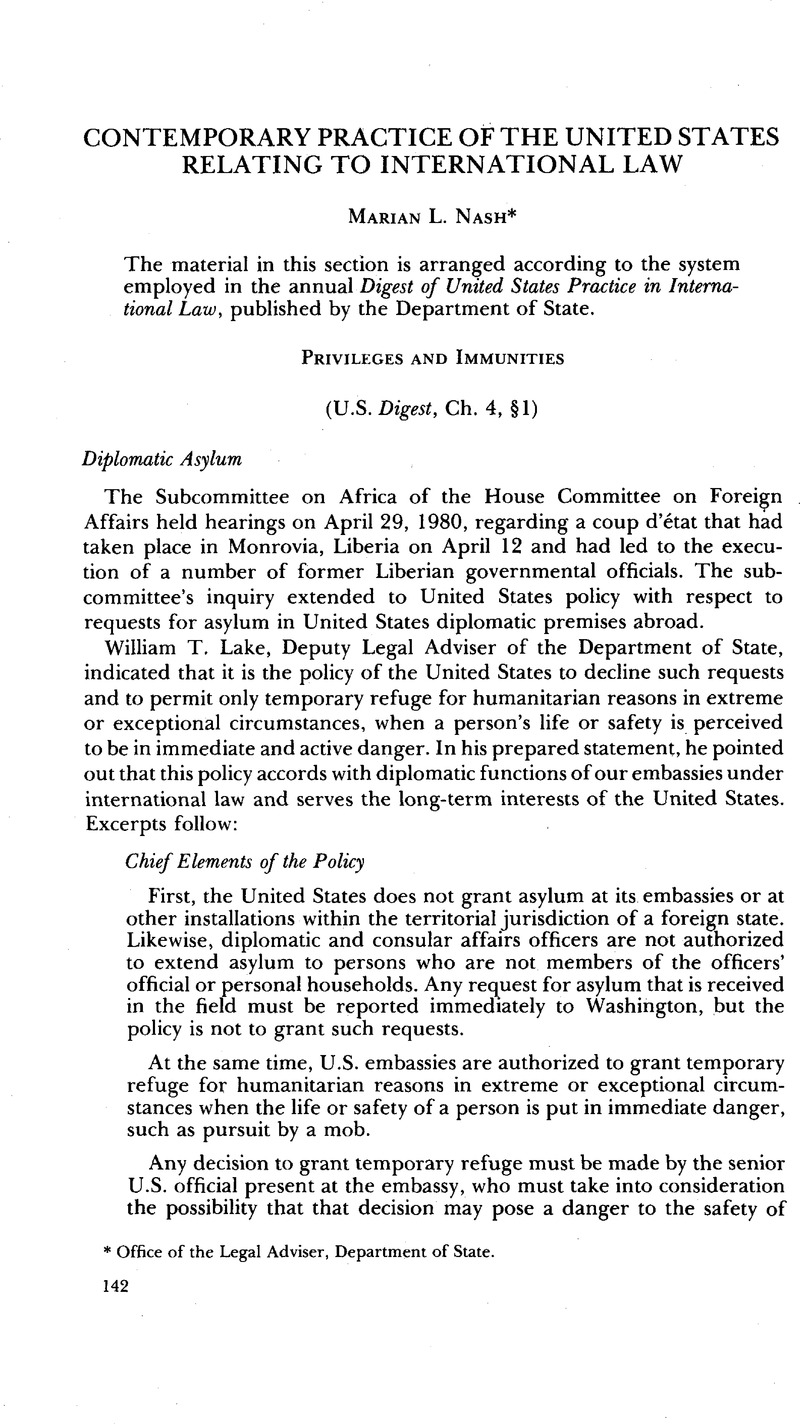Article contents
Contemporary Practice of the United States Relating to International Law
Published online by Cambridge University Press: 27 February 2017
Abstract

- Type
- Other
- Information
- Copyright
- Copyright © The American Society of International Law 1981
References
1 Dept. of State File Nos. P80 0124-1938, P80 0115-1502.
1 Dept. State Bull., No. 2043, Oct. 1980, at 50-51. William C. Harrop, then Deputy Assistant Secretary of State for African Affairs, also testified before the subcommittee. Mr. Harrop stated that some of the officials who had been executed had voluntarily surrendered to representatives of the new Liberian Government, and that none had requested asylum or extended refuge from the United States. Id.,No. 2040, July 1980, at 18-19.
2 Id.,No. 2039, at 68-69.
3 Id.at 69. Not with standing the failure of the Cuban Government formally to guarantee safety for the “safe-havened,” and notwithstanding that Cuban security officials interrogated all “safehavened” adult males leaving the Interests Section, the “safe-havened”persons departed from the Interests Section in small groups over a period of several months, on the basis of individual judgments as to the risk involved. No case was brought to the attention of the Interests Section, however, in which any of the former “safe-havened” persons had been tortured, imprisoned, or refused permission to depart from Cuba. Dept. of State Files, ARA/CCA.
4 Dept. of State News Briefing, DPC 180, Sept. 22, 1980, at 6-7.
5 Dept. of State File No. P80 0141 -1948. During the time that Kruglov was in the Embassy at Kabul, Afghan security police had attempted to search cars belonging to the Embassy or its members and had attempted to restrict access to the Embassy compound.
- 1
- Cited by




